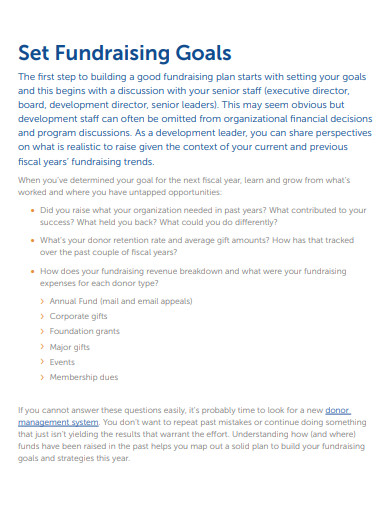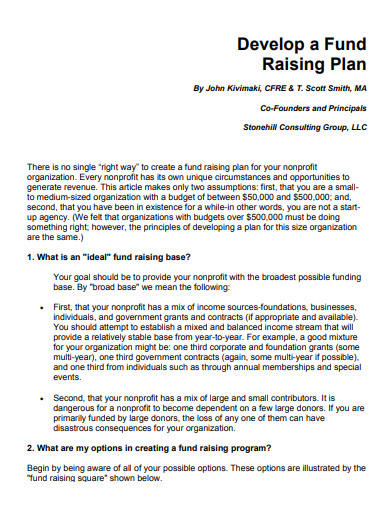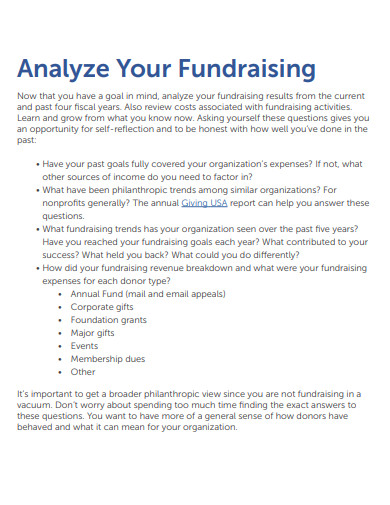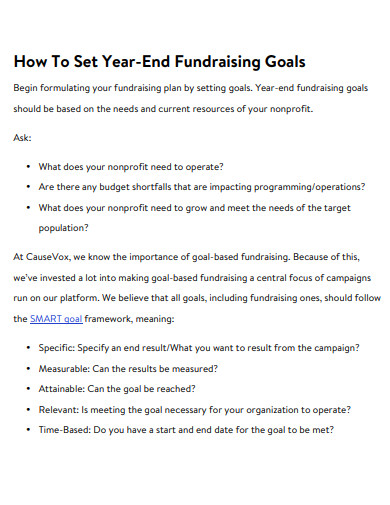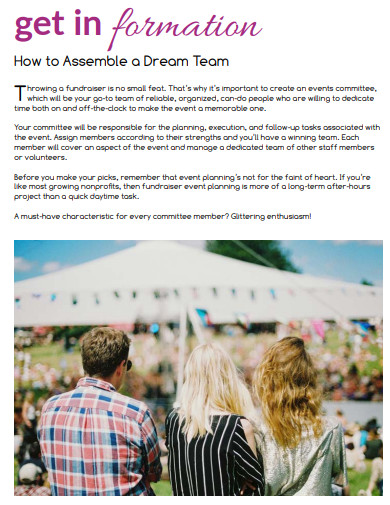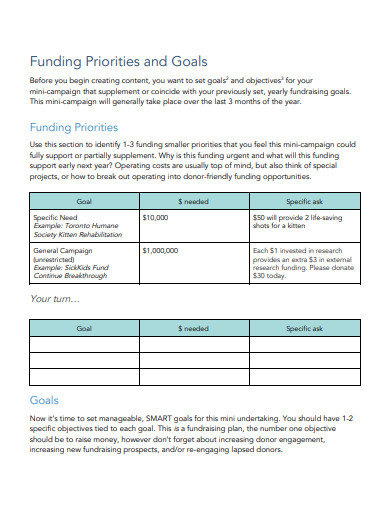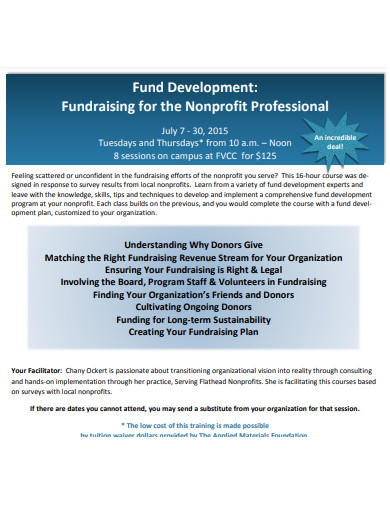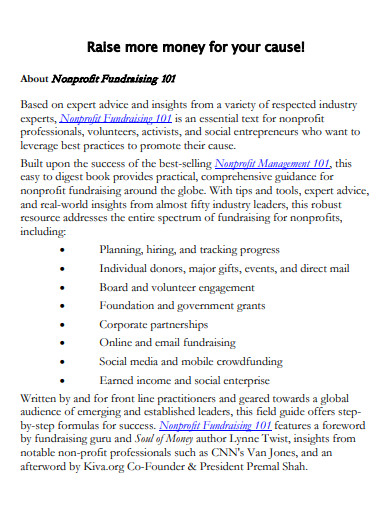A nonprofit organization’s main role is to raise funds to support their causes and their actions to continue helping their beneficiaries. Raising funds usually involves inviting sponsors, both existing and new sponsors, to invite them to donate to the organization. To ensure the success of the fundraising activity, the organization must create a nonprofit fundraising plan. The plan will guide the organization of the following procedures they need to do to smoothen out and organize the fundraising and to avoid any circumstances that could lead to the activity on flopping. Read the article to know how to make a nonprofit fundraising plan.
9+ Non-Profit Fundraising Plan Samples
1. Non-Profit Fundraising Plan
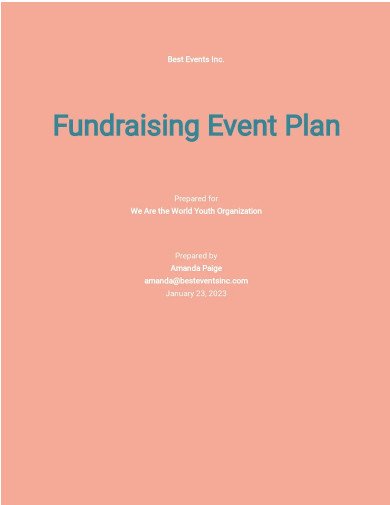
2. Nonprofit Fundraising Development Plan
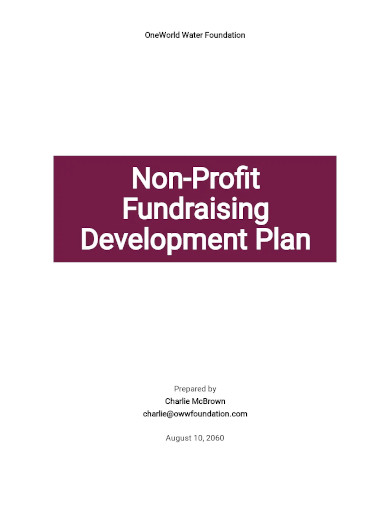
3. Nonprofit Charity Fundraising Plan
4. Nonprofit Organization Fundraising Plan
5. Sample Nonprofit Fundraising Plan
6. 60-Days Fundraising Plan For Nonprofits
7. Nonprofit Event Fundraising Plan
8. Micro Fundraising Plan for Nonprofit
9. Sample Nonprofit Fundraising Development Plan
10. Printable Nonprofit Fundraising Plan
Examples of Fundraising Ideas for Nonprofits
1. Individual Fundraising
Individual fundraising usually makes up most of the donations made to nonprofits. This is a classic way of raising money for a critical purpose to help an individual, groups of people, nature, and even animals. Individual fundraising involves the process of asking people personally (such as people within your network or even branches outside of it) to support and donate to your cause by sharing your story. Some common examples of individual fundraising include direct mail donations, online donations, or mobile donations.
2. Corporate Fundraising
Sometimes, nonprofits earn revenue from businesses or corporations giving donations annually or by sponsoring your organization. Businesses do this to fulfill their corporate social responsibility or earn good public relations. Some examples of corporate fundraising are volunteer grants, in-kind donations, run races, employee events, or co-venture donations.
How to Create A Nonprofit Fundraising Plan
1. Review Your Past Year’s Performance
If you held a fundraising activity last year, review all the things you did and evaluate how well you followed it. This will be a great step to plan for this year’s fundraising activity. Disregard this section if you haven’t held fundraising and if this is your first time.
To evaluate your last year’s performance, list your fundraising activities and their outcomes, identify the impact that it made on your organization, your sponsors, and your beneficiaries, and describe the challenges you went through that you don’t want to happen for this year’s fundraising.
2. Identify Your Current Resources
The next thing to do to include in your plan is to take inventory of your current available resources (such as staff, volunteers, equipment, and money) that will be essential for your fundraising activity. Don’t forget to also list down your limitations.
3. Create Activities to Attract Donors
Make a list of fun activities for your fundraising. Make sure that your activities must address acquiring more donors to your organization, and at the same time retaining and upgrading your current donors.
4. Create Goals
Of course, you’re doing fundraising because you have a goal or two and it is right to identify and know what you’re aiming for. Your goals could include hitting a certain amount of dollars to raise, or acquiring a certain number of new donors, etc. Identifying your goals helps you and your organization agree on what to prioritize and focus on.
5. Schedule Your Plan in a Calendar
It’s now time to incorporate your fundraising plan into your schedule. You can use a planner or a digital calendar to plot out your schedule. You can start by plotting your existing commitments before you can plot out the activities for your fundraising. Set milestones such as deadlines to measure your success.
6. Work on Your Plan
Now that you’ve prepared everything for your fundraising activity, it’s time to work on it and also think up of evaluation procedure you can do to measure your success rate. Hold regular progress reporting with your team to present the results of working on your plan, brainstorm more ideas, and share resources with other departments of your organization.
FAQs
How do non-profits make money?
Non-profit organizations get their revenue from donations, grants, memberships from sponsors, and selling merchandise products.
What are some examples of a non-profit organization?
Some examples of non-profit organizations (or also known as tax-exempt organizations) are formed for religious, charitable, artistic, scientific, or educational purposes.
Once you’re done creating your plan, review it first for any spelling and grammatical mistakes and change those before you present and discuss the plan with the rest of your team. The plan can be interchangeable, meaning you can still improve and update it even if you finished making it so make sure that your plan is adaptable to changes. To help you get started making your fundraising plan, download our free samples templates above to use as your reference!
Related Posts
FREE 10+ Charity Event Program Samples & Templates in MS Word ...
FREE 10+ Nonprofit Strategic Plan Samples in Word Docs | Pages ...
FREE 4+ Charity Disaster Recovery Plan Samples & Templates in ...
FREE 10+ Charity Budget Samples & Templates in MS Word PDF
FREE 15+ Strategy Samples in Microsoft Word Google Docs ...
FREE 13+ Sample Nonprofit Business Plan in Google Docs MS ...
FREE 8+ School Charity Proposal Samples in MS Word Google ...
FREE 10+ Nonprofit Organization Strategic Plan Samples in MS ...
FREE 10+ Charity Meeting Minutes Samples & Templates in MS ...
FREE 8+ Nonprofit Sponsorship Proposal Samples in MS Word ...
FREE 5+ Charity Development Plan Samples in MS Word Google ...
FREE 7+ How to Make a Non-Profit Annual Budget Samples in MS ...
FREE 10+ Charity Profile Samples & Templates in MS Word PDF
FREE 13+ Sample Non Profit Proposal Templates in PDF MS Word ...
FREE 21+ Fundraising Flyers in MS Word AI | PSD | EPS ...

